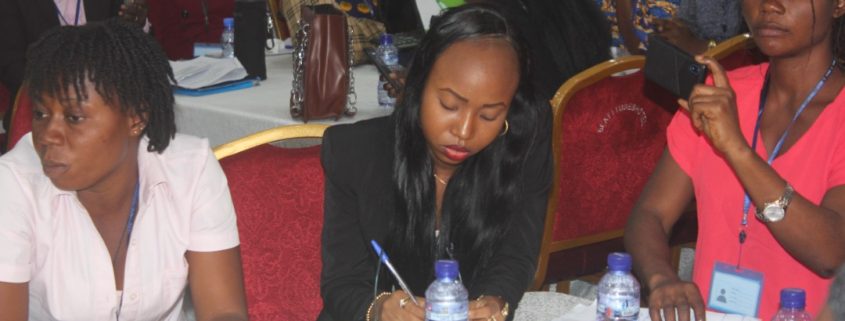FAWE DRC innovates for the well-being of schoolgirls – Forum for African Women Educationalists: FAWE
By Mohamadou Ba
With an estimated population of nearly 95,000,000, of which more than 50% are women, the DRC has one of the lowest primary school enrollment rates in the world, ahead of South Sudan, Afghanistan, and Somalia.
The education situation in the DRC is even more worrying because the school completion rate in several provinces of the country is below the national average of 31.1%.
Faced with this situation, girls are the most exposed to dropping out of school due to early pregnancy, gender-based violence and especially poverty, with the impossibility of paying school fees which leads parents to favor boys’ education.
The problem of access to education and girls’ retention in school remains a major concern for the Forum for African Women Educationalists in DRC (FAWE DRC). The pan-African NGO, FAWE, is constantly innovating to ensure the well-being of girls in schools but also to promote their empowerment through education.
- Empowerment of teachers and education stakeholders
At the frontline of youth education, teachers must be continually equipped to address the gender needs of learners. FAWE is therefore advocating with the relevant education stakeholders to introduce its gender responsive pedagogy (GRP) module in initial teacher training.
While waiting for its completion, FAWE is working with target schools in the DRC, as in other African countries, to train teachers in GRP. Over four days, about 50 teachers received capacity building on transformational pedagogy this March 2022 in Kinshasa. This training allows learner centered approach and helps integrate social context and realities in the content taught. All this is done through a gender-sensitive lens that allows teachers to consider the specific needs of girls.
“This training on gender responsive pedagogy will serve us beyond the classroom. The knowledge I received during the training will be useful to me even in my home and will allow me to better supervise my children,” confided a teacher at the end of the training on GRP in Kinshasa, DRC.
- The Digital Tuseme Club
An important part of FAWE DRC’s work is training girls in Tuseme, a Kiswahili word for “let’s express ourselves freely and without embarrassment. Tuseme” is a model of empowerment for girls that develops their leadership skills, builds their self-esteem, and allows them to speak out against issues that affect their well-being in school.
FAWE DRC Chapter established 25 Tuseme clubs in different schools in the capital city. This work was done with the support of OSISA, a partner committed to FAWE DRC’s efforts to ensure quality education for girls and boys in the country.
With the impact of Covid 19 on the conduct of school activities, FAWE DRC and OSISA have set up an online platform that allows students to continue their Tuseme club activities.
To join the online Tuseme club, simply download the Tuseme Club app from the playstore and sign up to interact with hundreds of other members across the country. “The App store version will soon be developed for iPhone users, and we aim to expand access to the application to other countries and make it a reference model within FAWE,” said Mr. Arnold Selenge, FAWE DRC national coordinator.
Both online and on site, members of Tuseme clubs can denounce gender-based violence through plays and other artistic performances.
- FAWE DRC “I Report” button
Visit the website www.fawe-rdc.org, you will not fail to see a red button written on the top right-hand side “Je dénonce” which stands for “I Report”. This is FAWE DRC’s innovation to allow victims or witnesses of gender-based violence to denounce the perpetrator in complete discretion.
Once the “I report” button is pressed, a form opens to allow us to collect information about the victim, the perpetrator, and the assault. An assistant will receive the form instantly and will follow up with the appropriate authorities.
This form is not just for students. It is open to anybody, and it is a way to limit acts of abuse against women, protect victims and punish perpetrators.
The violence prevails when no report is made, and the perpetrators will continue their crimes if they go unpunished. It is our duty as members of the community to help safeguard the well-being of girls and women in schools and beyond.




Leave a Reply
Want to join the discussion?Feel free to contribute!